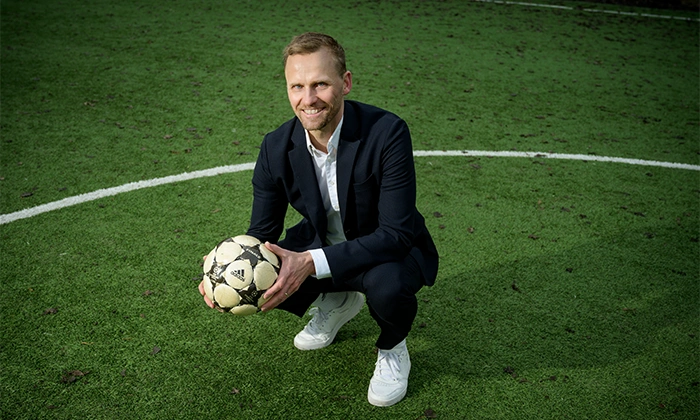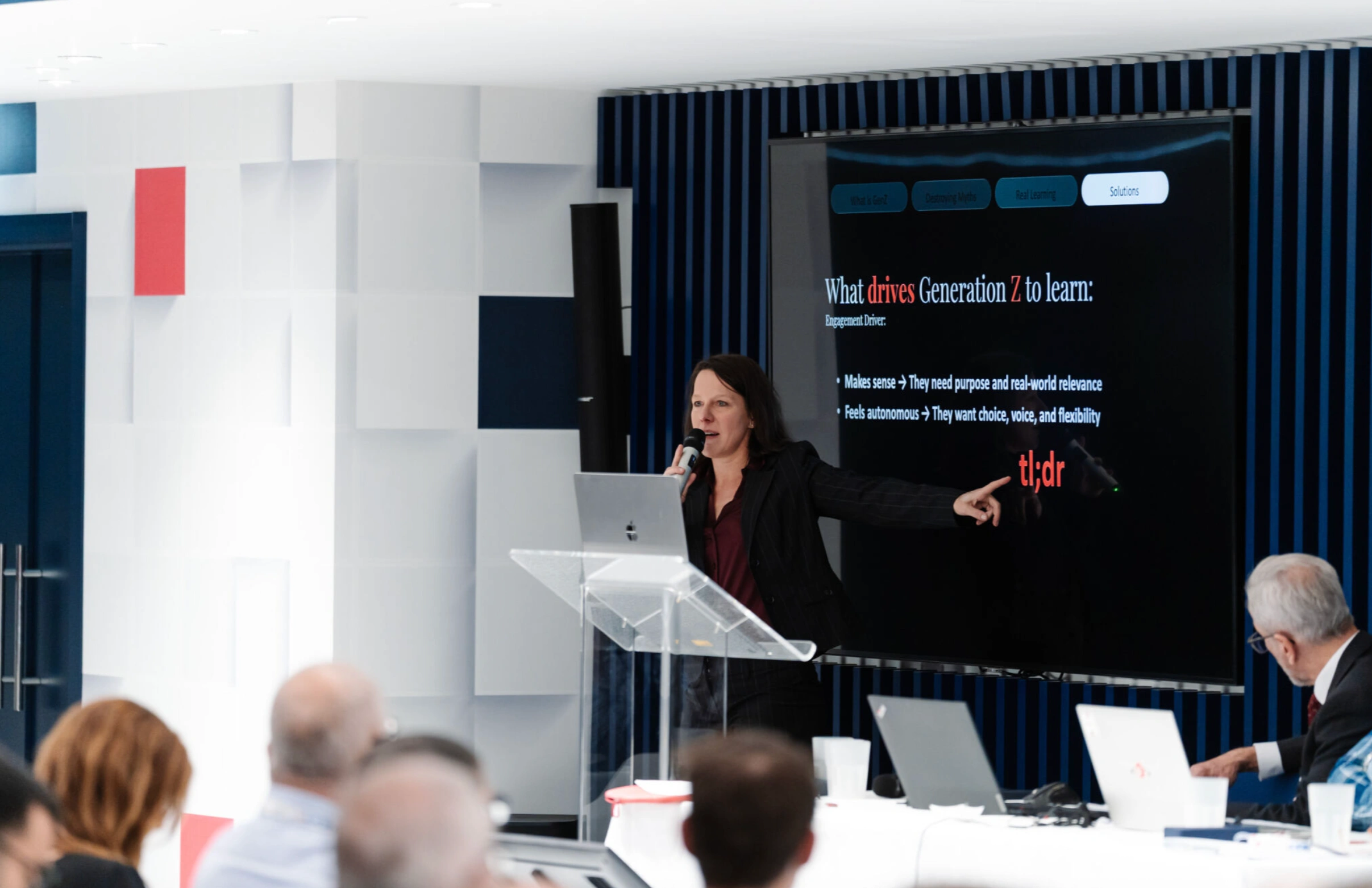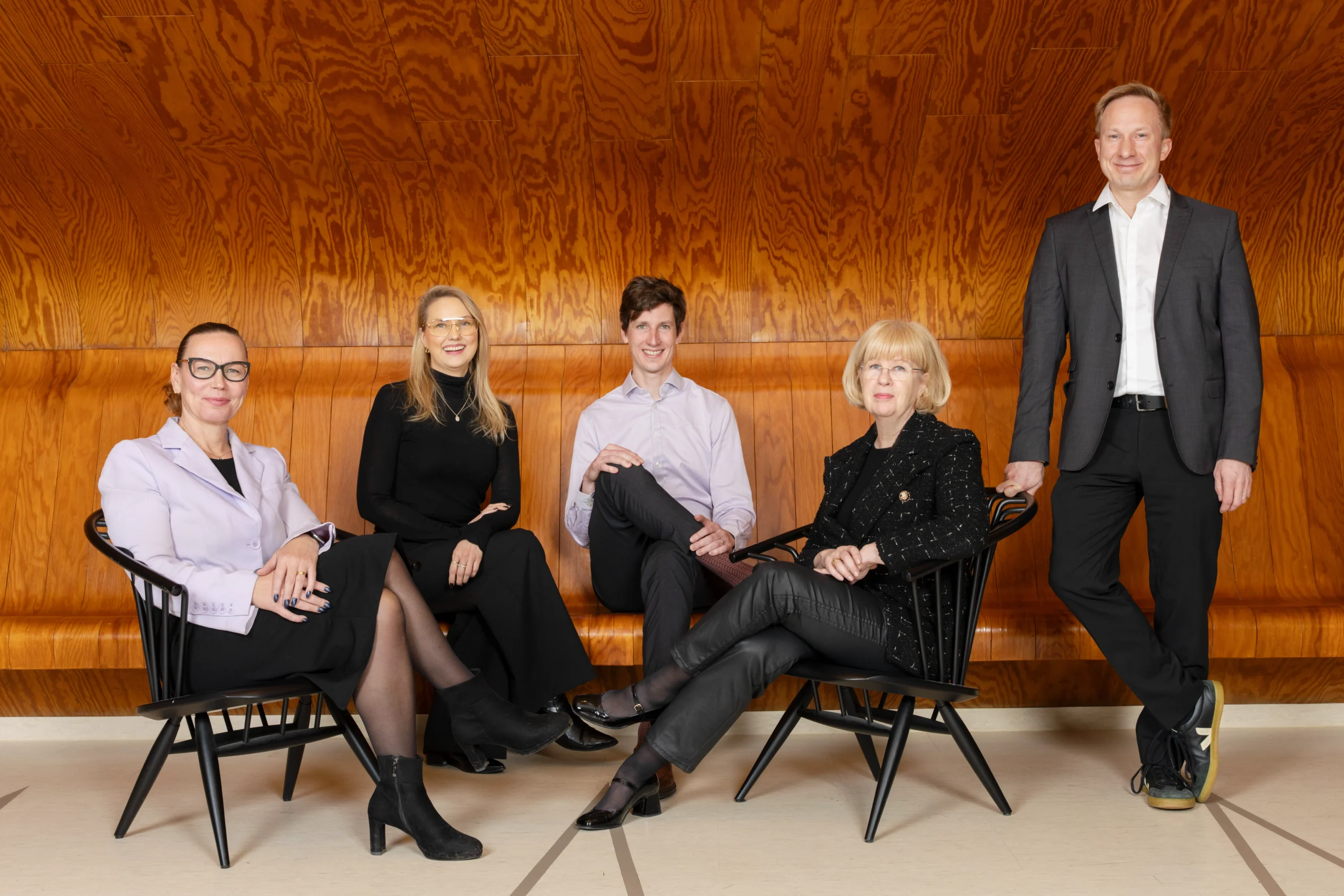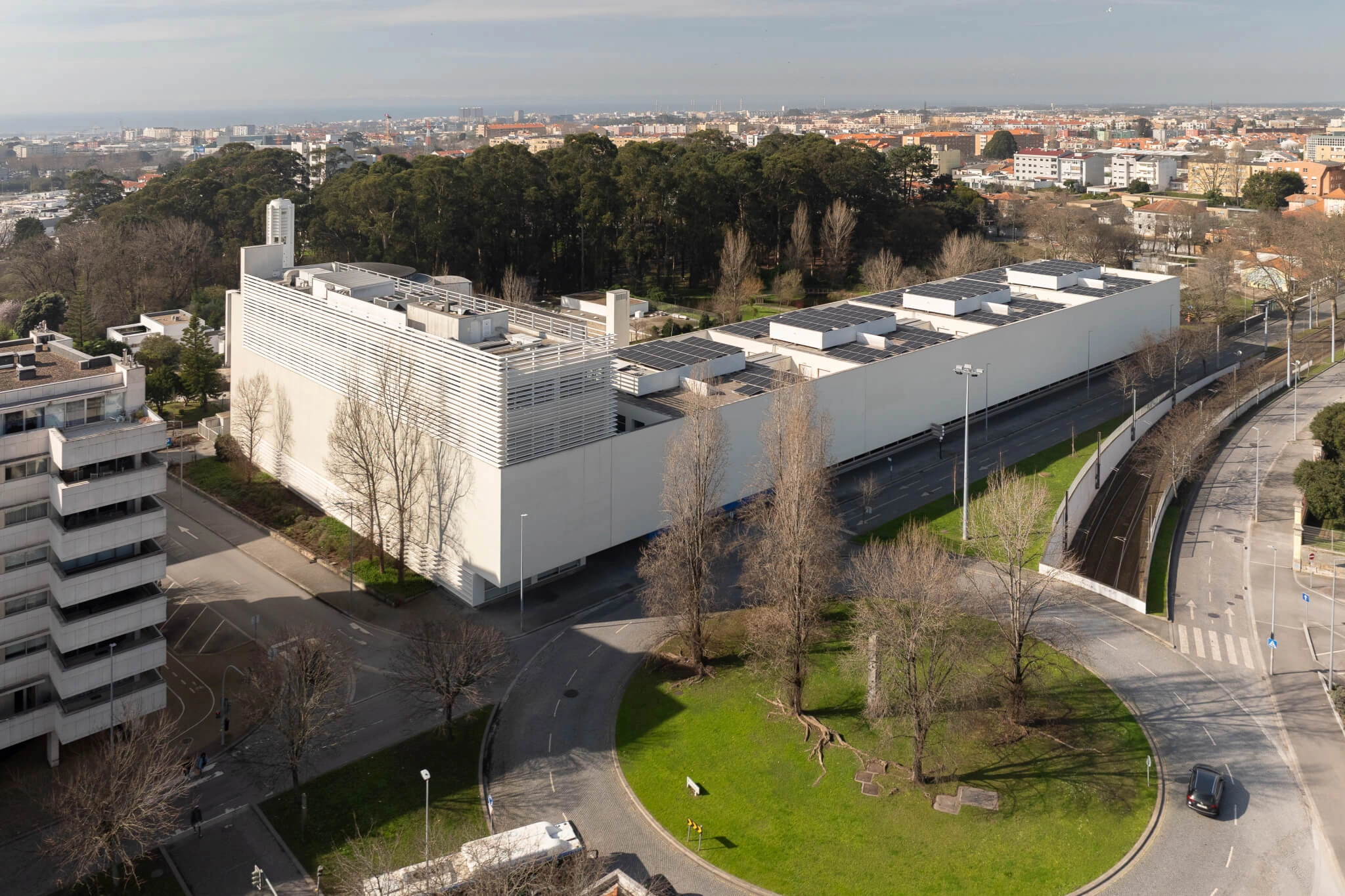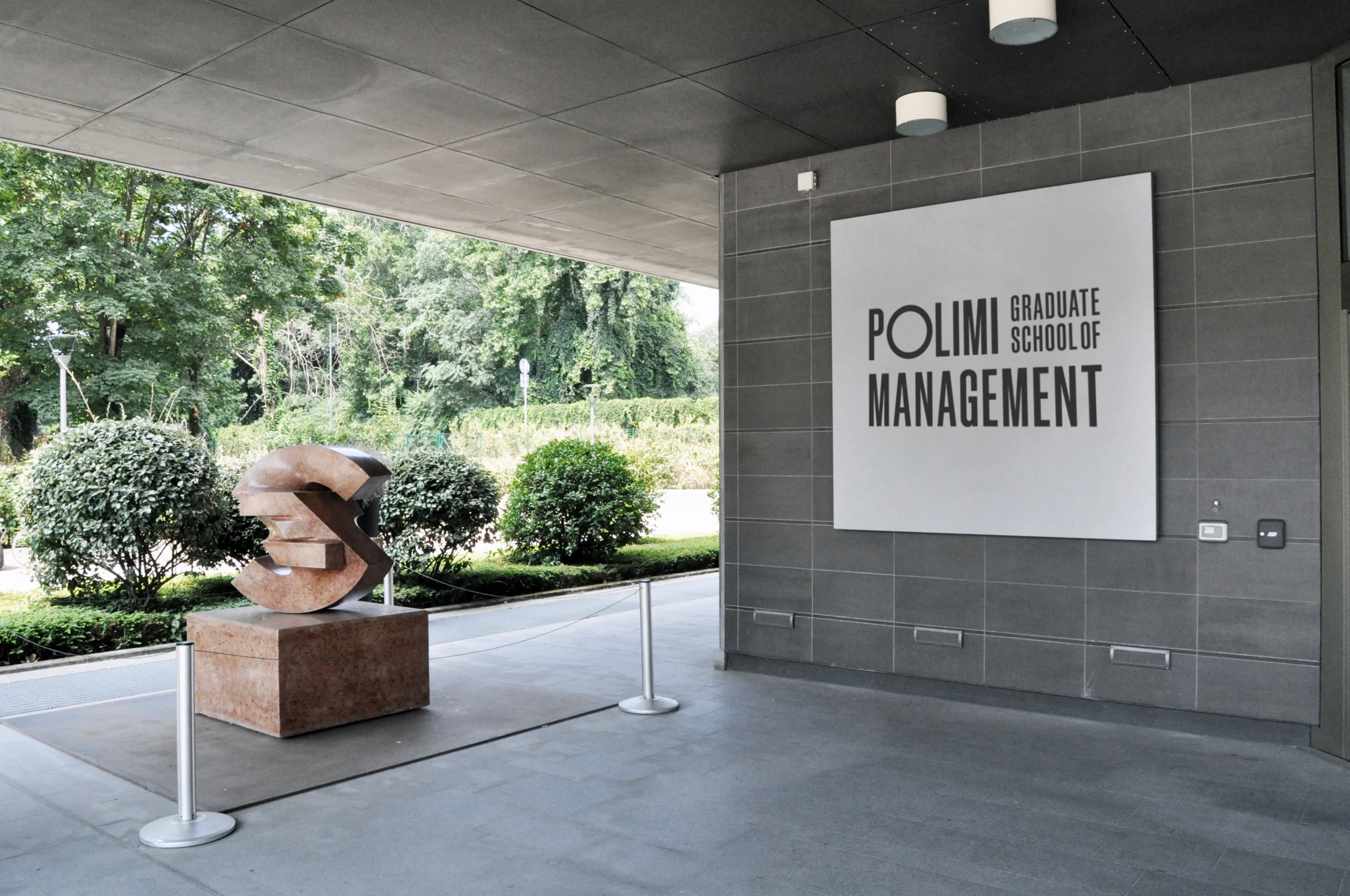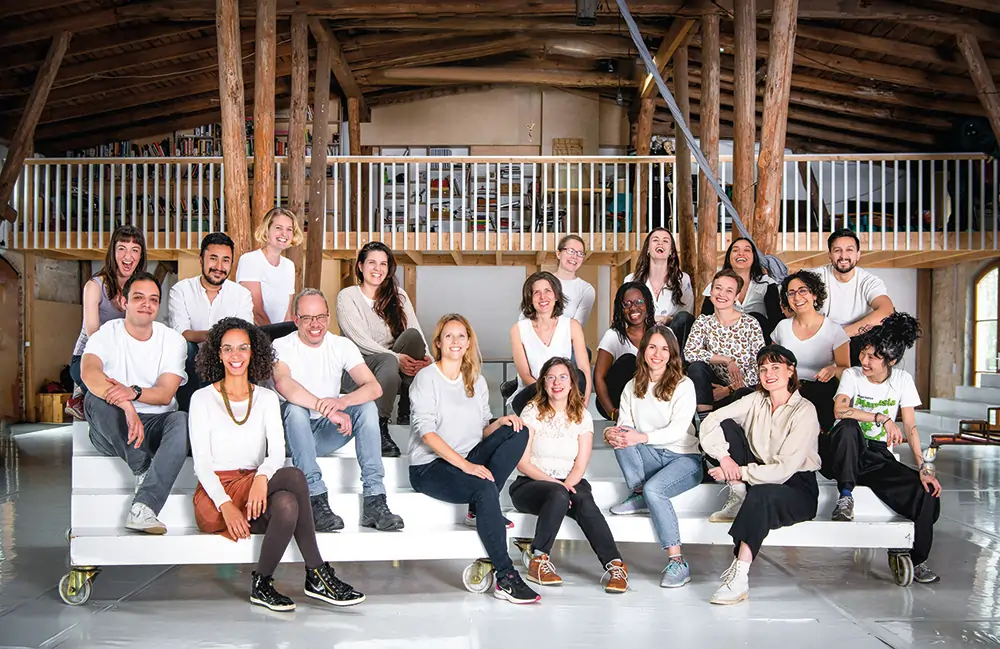Let’s not become remote controlled

John E. Kaye
- Published
- Executive Education, Home

Technology has certainly bailed us out during the pandemic – but it may come at a price that leaders must recognise, writes Sankalp Chaturvedi of Imperial College Business School
There are few out there that would contest the statement that technology has dramatically transformed the way we do business or how we collaborate with each other
From the tasks we perform, to the insights we have, technological innovation has changed the business landscape immeasurably, and in some cases unrecognisably. It has enabled organisations to completely rethink not only the kind of services they provide, and the sort of work that is required to provide those services, but the very concept of a company itself.
And if we take a moment to reflect on the last 18 months – if it wasn’t for the technological advancements that have been made in recent years, the Covid-19 pandemic would have brought the day-to-day operations of pretty much every company to a halt, and caused entire markets to completely crash (more than they did anyway). Thanks to human ingenuity, aided by technology, entire workforces were able to switch to operating remotely almost overnight. In short, due to technology, organisations were able to adapt to and overcome the immediate challenges posed by the coronavirus pandemic.
And at an employee level, for many, remote working has brought with it a number of benefits: the ability to work from anywhere in the world, greater flexibility, and in some cases a better work-life balance. But that’s not to say that hybrid working doesn’t bring with it a whole host of challenges for others.
For countless professionals out there, working in a hybrid world is both stressful and difficult. The boundaries between what is considered “work” and “home”, or “weekday” and “weekend” have become blurred. The disconnect they feel between themselves and their colleagues is not something that can simply be remedied by the occasional Zoom meeting or Teams call and, while others enjoy the extra time spent at home with family, some can find it a perpetual juggling act between work and family commitments. Now, to be clear, the two specific issues outlined here do not necessarily reflect the circumstances of all who find hybrid working challenging. There will be countless employees who don’t root their dislike of home-based working in having to balance family and work, or an underlying feeling of being disconnected from their colleagues, but the argument remains: hybrid working is a double-edged sword.
Leaders must recognise this: business is nothing without people, so it’s on those at the top to lift them up when they’re running and catch them when they fall. But, in a world of hybrid working, how can leaders ensure that they’re providing their colleagues with the support they need?
It starts with compassion
While there is no doubt that we should look back with pride at the way in which businesses and people alike adapted to unprecedented circumstances throughout the pandemic, one thing that we must acknowledge is that, to some degree, we have misunderstood the role of technology in business. As organisations, we have lost sight of the fact that ™ technology is there to support us in our day-to-day tasks. But what it isn’t there to do is to replace the human element to business. As hybrid working sets in for the long-haul, leaders must recognise this. Compassion and empathy must take precedence.
It won’t always be easy – never before have leaders needed to be so adaptable and flexible to do their job. The ability to empathise and to build and manage relationships in the real world can be challenging enough. But in the virtual world, when so many of the cues we need to read are limited to Zoom or Teams session, it’s that much harder. From reading body language to demonstrating that we’re looking directly at someone and actively listening, empathising virtually will be one of the biggest challenges in this transformed world.
Planning is critical
Virtually overnight companies have had to adapt to a new and often unfamiliar way of working, and they have done so with meetings migrating online, teams working together in a virtual space and many other aspects of business changing too. There is a sense that we have all become more efficient as we cram multiple meetings into an even longer working days. But a knock-on effect of this is that people have less time, energy and attention span.
And so, while its always critical that in-person meetings have structure to ensure they don’t become a waste of everyone’s time, this becomes all the more important in a hybrid world.
Before a meeting is even organised, consideration must be given to its purpose, if the leader has the skills required to chair it and, importantly, who needs to be there. There’s little value in co-opting colleagues into meetings that they won’t benefit from attending. In fact, you’re probably adding to an already-hectic schedule. So think carefully about who does and doesn’t need to be there.
But by the same token, participants must prepare for meetings and come ready to contribute. The agenda must be short and specific. The purpose of the meeting must be clearly defined, and must have an end goal so that all involved leave feeling that it has been successful.
We face a constantly changing future, so adaptability and flexibility must be part of any leader’s approach to management. Meetings and teamwork are central to business success; investing in getting them right in this new hybrid world will be the biggest challenge with the greatest rewards.
A new approach to collaboration and networking
Organisations rely on a strong teamwork. And, pre-pandemic, forming effective teams seemed simple enough. But the hybrid world has forced us to build new, virtual teams. This inevitably creates barriers to collaboration. Take new staff, for example. For anyone having taken on a new role in the midst of the Covid-19 pandemic, they’ve had to build predominantly, and in some cases exclusively, online relationships as they get their feet under a virtual table. And it is due to realities such as this that there are still many unknowns, and much anxiety around the future of working.
Leaders will need to really think about how best to nurture relationships with their colleagues on a long-term basis without the intangible benefits of physical proximity, such as the chats at the water cooler, the impromptu catch-ups, the social drink after work. It will require a concerted and consistent effort from leaders to engage with, motivate and support their team, ensuring that, no matter the geographical location of employees, they feel just as close to their colleagues as they would do if they were in the same room.
In the coming years, we will begin to see the lasting effects of the Covid-19 pandemic on the way we do business. And, while the future remains uncertain, hybrid working will unquestionably be one of those long-term changes. This will have a knock-on effect on employee experience. The challenges employees face now in a hybrid world will not simply subside, so it is on leaders to take steps to manage those challenges.
And with this in mind, I hope that one of the long-term impacts of the pandemic is that a greater emphasis is places on compassion and empathy in the workplace, assuming technology as background default. Gone are the days in which efficiency is everything. Happy, supported employees will be effective ones, and they will do more for the company in the long run. Leaders must remember that.
About the author:

Dr Sankalp Chaturvedi is a Professor of Organisational Behavior & Leadership at Imperial College Business School. He also leads the Gandhi Centre for Inclusive Innovation at the Business School.
RECENT ARTICLES
-
 Hannu Tihinen on strategy, leadership, and the value of an EMBA
Hannu Tihinen on strategy, leadership, and the value of an EMBA -
 European MBAs adapt to AI as Aalto overhauls executive education
European MBAs adapt to AI as Aalto overhauls executive education -
 From dialogue to action: how emba X prepares leaders for a new era of responsible innovation
From dialogue to action: how emba X prepares leaders for a new era of responsible innovation -
 How Europe can learn faster: turning AI into safer, smarter adult training
How Europe can learn faster: turning AI into safer, smarter adult training -
 Aalto EE launches Aalto Tech EMBA to equip executives for digital transformation
Aalto EE launches Aalto Tech EMBA to equip executives for digital transformation -
 Supply chains are being remade. Leadership must be too
Supply chains are being remade. Leadership must be too -
 Why the real barrier to AI success sits in the boardroom
Why the real barrier to AI success sits in the boardroom -
 ETH Zurich and the University of St.Gallen redefine executive education with emba X, a new model of responsible leadership
ETH Zurich and the University of St.Gallen redefine executive education with emba X, a new model of responsible leadership -
 Why leadership is the strongest defence in South Africa’s schools
Why leadership is the strongest defence in South Africa’s schools -
 Porto Business School launches executive programme on AI strategy
Porto Business School launches executive programme on AI strategy -
 POLIMI Graduate School of Management strengthens global reputation in MBA and master’s rankings
POLIMI Graduate School of Management strengthens global reputation in MBA and master’s rankings -
 Trinity Business School strengthens standing in global MBA rankings
Trinity Business School strengthens standing in global MBA rankings -
 Meet the class of 2025… and their children. Why mid-life university learning is on the rise
Meet the class of 2025… and their children. Why mid-life university learning is on the rise -
 University of Michigan launches executive programme for chief data and AI officers
University of Michigan launches executive programme for chief data and AI officers -
 International education: A vision for global citizens
International education: A vision for global citizens -
 How to create lasting social change? Build a community
How to create lasting social change? Build a community -
 Tomorrow’s world needs Dyslexic Thinking
Tomorrow’s world needs Dyslexic Thinking -
 Why family therapy is the best investment you can ever make
Why family therapy is the best investment you can ever make -
 How EQ can give us the edge over AI
How EQ can give us the edge over AI -
 A true root and branch approach
A true root and branch approach -
 It's fine to say you're not ok
It's fine to say you're not ok -
 Are you willing to change with your organisation?
Are you willing to change with your organisation? -
 Emerging markets: Online learning for women unlocks economic potential
Emerging markets: Online learning for women unlocks economic potential -
 A programme of urgent importance
A programme of urgent importance -
 Why progress is not parity
Why progress is not parity

